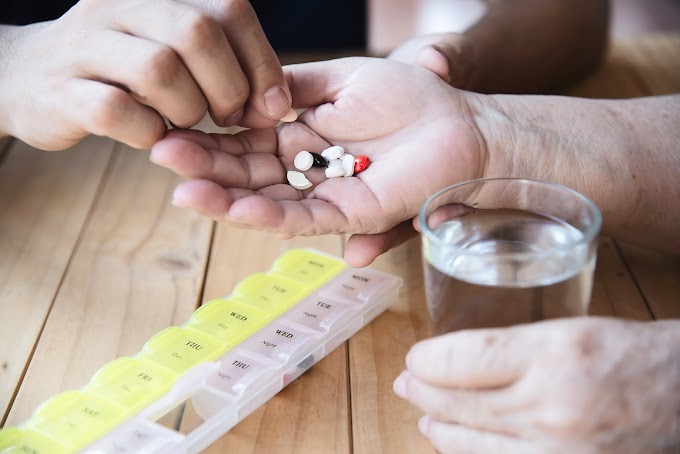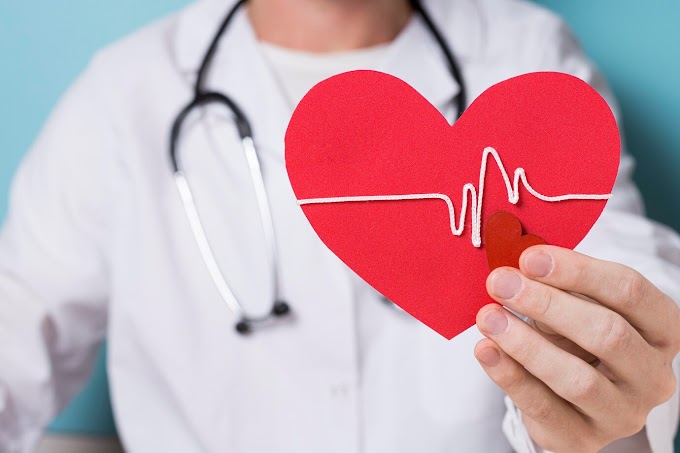Testicular torsion, bladder stones? Your penis falling off? Here are five concerning and possible life-threatening medical conditions that you and the men in your life need to know about. Today, we're checking out five of the most crazy or little known emergency medical conditions that men need to be aware of. Whether you were born male, identify as it, or just care about the men in your life and want to make sure they stay nice and healthy,
these are some more concerning medical conditions that you should definitely be aware of. You would be shocked to hear how often I treat some of these unusual and sometimes life-threatening ailments in the emergency department. Although some of these may make you a bit squeamish or uncomfortable, it's important for you to know about them. That's why today we're not holding back and discussing these emergent conditions that tend to affect men more. All right, let's dive right in.
Men's Health Problems Topics List:
- Testicular Torsion:
- Treatment:
- Bladder Stones:
- Runners Hematuria:
- Priapism:
Testicular Torsion:
Up first on our interesting medical condition topic of discussion: testicular torsion. Yes, I know what you were thinking. "Um, what in the what? " All right, bear with me. This may be painful for some just to hear about, but testicular torsion is a real-deal medical emergency in which the spermatic cord, the part of the testicle that provides blood supply to the area, becomes twisted or rotate. Maybe from an injury or possibly something else. But basically, the blood supply to the testicle is cut off, causing possible atrophy or shrinkage to the area. If the blood supply isn't restored
or the area isn't untwisted so to speak in a matter of four to eight hours, the testicle could infarct or die. No, I am not joking either. This is a very serious emergent situation that affects males more than you realize. Although it is typically seen in younger teenage boys, males of any age can experience a testicular torsion at some point in their life. The most common reason anatomically for this to occur is the attachment of the spermatic cord to the testicle is at the wrong place, causing something called a bell clapper deformity, which makes it easier to spin on its own axis.
Treatment:

Treatment for this serious situation, surgery is usually required to correct it, but in some cases, a doctor might be able to untwist the testicle by pushing the scrotum manually. Although, you still may have to undergo surgery at some point to prevent it from happening again. In the emergency department and any doctor were taught to use an "open book" type of pattern to try to detour it. Basically you're taking immediately and twisting it laterally in trying to do that and untwisting. If the pain gets worse,
then you twist it the other direction, and then surgery, they actually take the testicle and almost pin it to the scrotum itself so it can't rotate. Pretty crazy. Okay, how do you know if you have torsion? Symptoms like strong pain to that area, swelling, redness, feeling sick, or one testicle might be positioned higher than the other. If you have any concerns, you or someone you know has torsion, make sure you see a doctor immediately as you really do not, I repeat, do not want to lose blood supply to this area.
Bladder Stones:
Number four, bladder stones. Pain in the lower abdomen. Feeling like you have to constantly urinate. Pain in the penis or testicles. This isn't a fun one, either. Not to be confused with kidney stones, bladder stones are hard masses of minerals found in your bladder. They can develop when the minerals in concentrated urine crystallize and form stones. So yes, technically anybody can get bladder stones, but men, for some reason, especially over the age of 50, are more likely to get 'em. Men over the age of 50 have benign prostatic hyperplasia, or BPH, and BPH causes the prostate, an organ located below the bladder in men, to get larger. An enlarged prostate can often make it difficult to drain the bladder completely, which can cause stones to form
when the urine just sits in the bladder for too long. Other people who are at risk for bladder stones, those with any nerve damage, like a spinal cord injury, or those who have previously had surgery on the bladder or intestines. Okay, how do you know if you have bladder stones? Well, things like changes in your urine color, frequent need to urinate, or stopping and starting the flow of urine, and of course, pain can all be symptoms. In extreme cases, leading to serious complications like damage to the bladder, kidneys, uremic poisoning, and death could result, but that's in severe cases. Most bladder stones can pass on their own or can be removed. Often a doctor will first do a cystoscopy to find the stones and then use a laser or some other tool to break up the stones into pieces so that they can be flushed out. If the stones are too large, surgery could be an option as well.
Runners Hematuria:
Number two, runner's hematuria. Although technically anybody can get our next condition, hematuria is often more commonly found in male patients, and it's defined by the presence of red blood cells in the urine. It can cause your urine to become bright red, pink, or even brown. Possible causes a blood in the urine could be a urinary tract infection, kidney stones, tumors of the bladder, or kidney trauma, and maybe one of the most common reasons: exercise! Often called the runner's hematuria. . . - [Boy] Run, Forrest! marathoner's hematuria, and a ton more.
This condition is usually a benign condition in which there is blood in the urine after working out. It's often common in runners or those who participate in long endurance events and in people who experienced poor hydration. For instance, a small study of 25 male 100 kilometer ultra endurance runners, Prolonged activity modifies hematological parameters and promotes anemia, leading to decreases in hemoglobin and hematocrit level. In other words, the exercise induced hematuria can last for a few hours or even days after working out. But if you find yourself still experiencing symptoms or blood in the urine after 72 hours, definitely contact your doctor as more studies and medical treatment may be needed.
Priapism:
.jpg)
Number one, priapism. Sounds interesting enough, but I can assure you as a male, this is nothing that you ever want to have happen in your own life, and if you do come to the ER to see me for this condition, you may hate me afterwards. I'll explain. Priapism is a condition that can occur in males of all ages in which prolonged erections happen, and it's usually unrelated to any type of sexual activity. Yep, and it's a painful erection that just won't go away no matter what you do. What causes this prolonged penis pump of sorts? Well, things like taking erectile dysfunction medications, other none ED medications, blood thinners, antidepressants, blood pressure medications, and even conditions like sickle-cell disease can all cause priapism. Again, this can happen at any age. Ischemic priapism, AKA low-flow priapism, is the most common form of priapism and is a result of blood not being able to leave the penis. In other words, blood is trapped in the penis and cannot flow out of the vein. This is bad news and seriously requires immediate medical care. If you have an erection lasting more than four hours, you need to seek emergent care immediately. I am not joking. If you do not treat this, it can cause serious complications and destroy tissue inside of the penis. Not only that, but it can lead to possible erectile dysfunction later on,
and in severe cases could cause you to actually lose your penis. So, if you think you were suffering from priapism, definitely get to the hospital ASAP. To try and reduce short bouts of extended erections, try putting ice or a cold pack in directly on your pelvic area for 10 to 20 minutes at a time. Now, if you do come into the hospital after having an erection for a prolonged period of time, forewarning, (sirens blare) the ED docs, such as myself, have to physically drain the blood out of the penis with needles. It's not a fun process for anybody, but definitely better than losing your member altogether. All right, that's been so male concerning medical conditions with me, Dr. Wagner. Let me know in the comments if you have any other medical concerns or unique topics that you want me to discuss further. I'll be sure to include them in my next post. Also, please make sure you and turn your bell notifications on. When you do that, and see more post like this one. Oh, and if you enjoyed Reading this Post, Thank you so much for Reading, and stay healthy, my friends.




.jpg)

.jpg)
.jpg)

.jpg)
.jpg)
.jpg)


.jpg)



